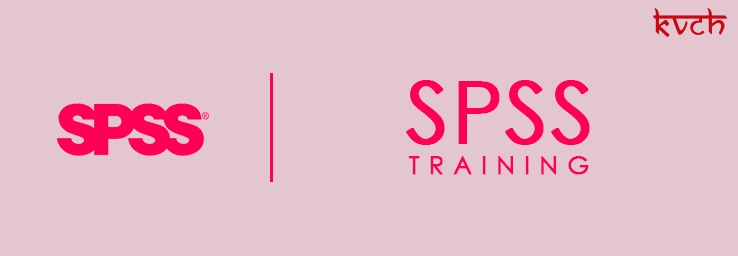
Live Project Based Spss Programming training in Noida
 4.8 out of 5
based on 2307 ratings.
4.8 out of 5
based on 2307 ratings.
KVCH is the pioneer of education providing the�best Spss Programming training in Noida�as per the current industry requirement that enables candidates to land on their dream jobs in companies worldwide. KVCH Provides best Spss Programming training course in Noida. KVCH is a renowned training company providing the best training service and also being the best Spss Programming training institute in Noida rendering practical knowledge through training on projects and a dedicated placement assistance for all.�The course curriculum for Spss Programming training course is designed to provide in-depth knowledge that covers all the modules for the training ranging from basic to advanced level. At KVCH Spss Programming training in Noida is supervised and managed by industrial experts having more than 10 years of experience in handling Spss Programming projects. KVCH training comprises of both classroom as well as practical sessions to deliver an ideal environment for students that will enable them to handle difficult and complex situation when they would step into the reality of IT sector.
KVCH is the best Spss Programming training center in Noida with high tech infrastructure�aspirants learn the skills for Spss Programming that comprises of Overview of Spss Programming and, Spss Programming on real time projects along with Spss Programming placement training. Spss Programming certification training in Noida has been planned out under the guidance of the leaders of MNC�s to provide the best extensive knowledge of Spss Programming with the advanced Spss Programming course content and syllabus. The course structure is constructed by the technology experts that will help in facilitating professionalism in students and also further down the line , the Spss Programming training program will help them achieve their goal and to get placed in MNC and Big corporations.
KVCH is an excellent Spss Programming training center in Noida with superior integrated infrastructure and newly designed labs for students to practice and pursue training for multiple courses at Noida. KVCH institute in Noida train thousands of students around the globe every year for the Spss Programming training at an affordable price which is customised as per each candidate�s requirement of modules and content.
Spss Programming training course involves "Hands-on experience", we believe in practice what you preach and therefore each candidate is encouraged to practically conduct each topic that is discussed for better understanding of real-world scenar Spss Programming. This practice of comprehensive training allows candidate to gain all the concepts and skills effectively and to later efficiently apply on their field of work.
KVCH is one of the�best Spss Programming training institute in Noida�with 100% placement assistance. KVCH has well structure modules and training program designed for both students and working professionals separately. At KVCH Spss Programming training is conducted during all 5 days, and special weekend classes. Can also be arranged and scheduled. We also provide fast track training programs for students and professionals looking to upgrade themselves instantly.
Benefits

Accredited Curriculum

Learn from the Experts

Professional Certificate

Guranteed Career Growth

Placement Assistance

Earn a Valuable Certificate
SPSS Programming
- Statistics?
- The Research Process
- Initial Observation
- Generate Theory
- Generate Hypotheses
- Data collection to Test Theory
- What to measure
- How to Measure
- Analyze data
- Descriptive Statistics: Overview
- Central Tendency
- Measure of variation
- Coefficient of Variation
- Fitting Statistical Models
- Conclusion
- Building statistical models
- Types of statistical models
- Populations and samples
- Simple statistical models
- The mean as a model
- The variance and standard deviation
- Central Limit Theorem
- The standard error
- Confidence Intervals
- Test statistics
- Non-significant results and Significant results
- One- and two-tailed tests
- Type I and Type II errors
- Effect Sizes
- Statistical power
- Accessing SPSS
- To explore the key windows in SPSS
- Data editor
- The viewer
- The syntax editor
- How to create variables
- Enter Data and adjust the properties of your variables
- How to Load Files and Save
- Opening Excel Files
- Recoding Variables
- Deleting/Inserting a Case or a Column
- Selecting Cases
- Using SPSS Help
- The art of presenting data
- The SPSS Chart Builder
- Histograms: a good way to spot obvious problems
- Boxplots (box�whisker diagrams)
- Graphing means: bar charts and error bars
- Simple bar charts for independent means
- Clustered bar charts for independent means
- Simple bar charts for related means
- Clustered bar charts for related means
- Clustered bar charts for �mixed� designs
- Line charts
- Graphing relationships: the scatterplot
- Simple scatterplot
- Grouped scatterplot
- Simple and grouped -D scatterplots
- Matrix scatterplot
- Simple dot plot or density plot
- Drop-line graph
- Simple scatterplot
- Editing graphs
- What are assumptions?
- Assumptions of parametric data
- The assumption of normality
- Quantifying normality with numbers
- Exploring groups of data
- Testing whether a distribution is normal
- Kolmogorov�Smirnov test on SPSS
- Output from the explore procedure
- Reporting the K�S test
- Testing for homogeneity of variance
- Levene�s test
- Reporting Levene�s test
- Correcting problems in the data
- Dealing with outliers
- Dealing with non-normality and unequal variances
- Transforming the data using SPSS
- Looking at relationships
- How do we measure relationships?
- Covariance
- Standardization and the correlation coefficient
- The significance of the correlation coefficient
- Confidence intervals for r
- Correlation in SPSS
- Bivariate correlation
- Pearson�s correlation coefficient
- Spearman�s correlation coefficient
- Kendall�s tau (non-parametric)
- Biserial and point�biserial correlations
- Partial correlation
- The theory behind part and partial correlation
- Partial correlation using SPSS
- Semi-partial (or part) correlations
- Comparing correlations
- Comparing independent rs
- dependent rs
- Calculating the effect size
- How to report correlation coefficients
- An introduction to regression
- Some important information about straight lines
- The method of least squares
- Assessing the goodness of fit: sums of squares, R and R2
- Doing simple regression on SPSS
- Interpreting a simple regression
- Overall fit of the model
- Model parameters
- Using the model
- Multiple regression: the basics
- An example of a multiple regression model
- Sums of squares, R and R2
- Methods of regression
- How accurate is my regression model?
- Assessing the regression model I: diagnostics
- Assessing the regression model II: generalization
- How to do multiple regression using SPSS
- Some things to think about before the analysis
- Main options
- Statistics
- Regression plots
- Saving regression diagnostics
- Interpreting multiple regression
- Descriptive
- Summary of model
- Model parameters
- Excluded variables
- Assessing the assumption of no multicollinearity
- Casewise diagnostics
- Checking assumptions
- What if I violate an assumption?
- to report multiple regression
- Dummy coding
- SPSS output for dummy variables
- Background to logistic regression
- What are the principles behind logistic regression?
- Assessing the model: the log-likelihood statistic
- Assessing the model: R and R2
- The Wald statistic
- The odds ratio: Exp (B)
- Methods of logistic regression
- Assumptions
- Incomplete information from the predictors
- Complete separation
- Overdispersion
- Binary logistic regression
- The main analysis
- Method of regression
- Categorical predictors
- Obtaining residuals
- Interpreting logistic regression
- The initial model
- Step: intervention
- Listing predicted probabilities
- Interpreting residuals
- Calculating the effect size
- How to report logistic regression
- Testing assumptions
- Testing for linearity of the logit
- Predicting several categories: multinomial logistic regression
- Running multinomial logistic regression in SPSS
- Statistics
- Other options
- Interpreting the multinomial logistic regression output
- Reporting the results
- Looking at differences
- A problem with error bar graphs of repeated-measures designs
- Step : calculate the mean for each participant
- Step : calculate the grand mean
- Step : calculate the adjustment factor
- create adjusted values for each variable
- The t-test
- Rationale for the t-test
- Assumptions of the t-test
- Sampling distributions and the standard error
- The dependent t-test equation explained
- The dependent t-test and the assumption of normality
- Dependent t-tests using SPSS
- Output from the dependent t-test
- Calculating the effect
- Reporting the dependent t-test
- The independent t-test
- The independent t-test equation explained
- The independent t-test using SPSS
- Output from the independent t-test
- Calculating the effect size
- Reporting the independent t-test
- Between groups or repeated measures?
- The t-test as a general linear model
- The theory behind ANOVA
- Inflated error rates
- Interpreting f-test
- ANOVA as regression
- Logic of the f-ratio
- Total sum of squares (SST)
- Model sum of squares (SSM)
- Residual sum of squares (SSR)
- Mean squares
- The f-ratio
- Assumptions of ANOVA
- Planned contrasts
- Post hoc procedure
- Running one-way ANOVA on SPSS
- Planned comparisons using SPSS
- Post hoc tests in SPSS
- Output from one-way ANOVA
- Output for the main analysis
- Output for planned comparisons
- Output for post hoc tests
- Calculating the effect size
- Reporting results from one-way independent ANOVA
- Violations of assumptions in one-way independent ANOVA
- Analysing categorical data
- Theory of analysing categorical data
- Pearson�s chi-square test
- Fisher�s exact test
- The likelihood ratio
- Yates� correction
- Assumptions of the chi-square test
- Doing chi-square on SPSS
- Running the analysis
- Breaking down a significant chi-square test with standardized residuals
- Calculating an effect size
- Reporting the results of chi-square
Research methods :
Statistics :
SPSS Environment :
Exploring data with graphs :
Exploring assumptions :
Correlation :
Regression:
Categorical predictor in multiple regression :
Logistic regression :
Comparing two means (t-test) :
Comparing several means: ANOVA (GLM) :
Chi-square :
Top Reasons to Choose KVCH for Spss Programming Programming Training in Noida
- Spss Programming training in Noida is constructed as per the IT industry standard.
- We Offer the best Spss Programming training and dedicated placement assistance in Noida with properly planned training modules and course content.
- Regular and Weekends classes for Spss Programming training in Noida is provided.
- One of the biggest team of Certified Expert Trainers with 5 to 15 years of Real Industry Experience.
- Mentors of Spss Programming training in Noida helps in major project training, minor project training, live project preparation, interview preparation and job placement support.
- Smart Labs with Real Latest Equipment�s.
- 24x7 Lab Facilities. Students are free to access the labs for unlimited number of hours as per their own preferred timings.
- Silent and Discussion Zone areas in Labs to enhance Self Study and Group Discussions.
- Free of Cost Personality Development sessions including Spoken English, Group Discussions, Mock Interviews, Presentation skills.
- Free of Cost Seminars for Personality Development & Personal Presentation.
- Varity of Study Material: Books, PDF�s, Video Lectures, Sample questions, Interview Questions (Technical and HR), and Projects.
- Hostel Facilities available at Rs. 5,500/month for Spss Programming Training in Noida students.
- Free Study Material, PDFs, Video Trainings, Sample Questions, Exam Preparation, Interview Questions, Lab Guides.
- Globally Recognized Course Completion Certificate.
- Extra Time Slots (E.T.S.) for Practical�s (Unlimited), Absolutely Free.
- The ability to retake the class at no-charge as often as desired.
- One-on-One attention by instructors.
- Helps students to take knowledge of complex technical concepts.
- Payment options: Cheque, Cash, Credit Card, Debit card, Net Banking.
KVCH Trainer's Profile for Spss Programming Training in Noida
- Are experts in their field of domain and constantly upgrade themselves with new tools to impart the best training of a real working environment
- Have been carefully selected by our training partners and recognized over the years by various organizations for their field of work.
- Have years of experience in working in Big corporation and MNC�s like IBM, HCL Technologies, Sapient, Birla soft, TCS, Accenture etc.
- Certified Industry Professionals with more than 10+ years of experience in Itindustry.
- Connected with placement cells of various companies to help and support students for placement
KVCH'S Spss Programming Trainers are:
Placement Assistance after Spss Programming Training in Noida
- KVCH is the world leader in rendering placement assistance to students with the help of a dedicate placement cell that supports and assists students during the time of placement.
- KVCH also provide the best Resume Building Service, by helping students to design their resume as per the latest industry trend.
- KVCH regularly organizes Personality Development sessions including Group Discussions, Mock Interviews, Presentation skills that help students in overall personality development and to present themselves confidently at the time of interview.
- KVCH has helped students to grab their dream jobs in companies like IBM , HCL , Wipro , TCS , Accenture ,etc.
KVCH'S Placement Assistance
KVCH Course duration for Spss Programming Training in Noida
- Regular Classes� 5 days a week (Morning, Day time & Evening)
- Weekend Classes (Saturday, Sunday & Holidays)
- Fast-track Classes
 +1.844.44.55.767
+1.844.44.55.767  +91.9510.860.860
+91.9510.860.860
